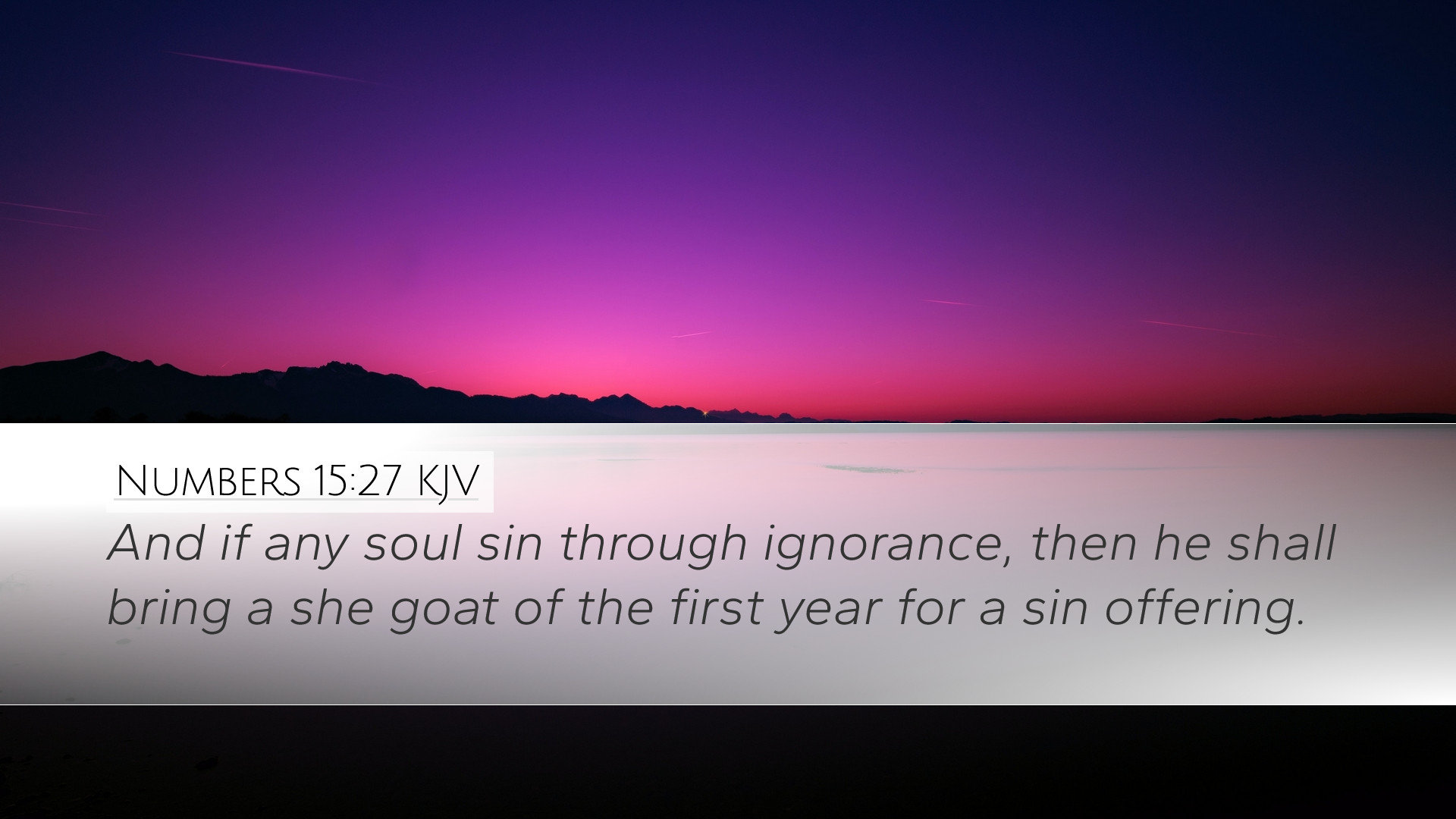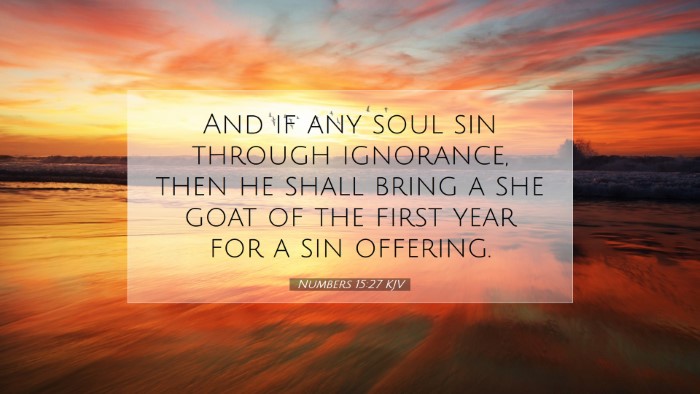Commentary on Numbers 15:27
Verse Text: "And if any soul sin through ignorance, then he shall bring a she goat of the first year for a sin offering."
Overview
Numbers 15:27 addresses sins committed unintentionally. This passage distinguishes between deliberate sin and inadvertent transgressions, emphasizing the compassionate nature of God's law and the provision for atonement. It highlights the necessity of atonement within the covenant community and underlines God's desire for holiness among His people.
Key Themes
- Inadvertent Sin: The recognition that humans may sin without conscious intent demonstrates God's understanding of human frailty.
- Provision for Atonement: The requirement of a sin offering illustrates God's provision for redemption and restoration.
- Community Responsibility: Acknowledges the shared responsibility of the community in upholding God's standards through proper sacrificial practices.
Insights from Commentators
Matthew Henry
Henry emphasizes that the distinction between intentional and unintentional sins highlights God's justice and mercy. He notes that all sins, regardless of intent, require atonement, yet the provision for ignorance showed God's grace. He asserts that the offerings prescribed for such sins reflect God's desire for repentance and should encourage believers to remain vigilant in their walk with Him.
Albert Barnes
Barnes comments on the socio-religious implications of this verse, noting that the sin offering is a formal recognition of one's need for atonement. He points out that the specific instruction regarding the she-goat indicates that God provides a means to reconcile with Him, underscoring the importance of acknowledging one's sin—intentional or not. Moreover, Barnes reflects on the broader implications for the community, urging them to cultivate a spirit of vigilance and accountability.
Adam Clarke
Clarke adds a practical dimension, noting that sins of ignorance are often overlooked in contemporary interpretations of morality. He argues that this verse reminds believers that even unintentional transgressions can have significant consequences, and emphasizes the necessity of approaching God with humility and a contrite heart. Clarke also draws parallels between this Old Testament principle and the New Testament teachings on Christ as the ultimate sin offering.
Theological Implications
This verse raises significant theological themes pertinent to the understanding of sin, atonement, and God’s holiness:
- Nature of Sin: The verse implies that all forms of sin, even those committed without knowledge, demand a response. It reflects the comprehensive nature of God's holiness.
- Atonement and Sacrifice: The requirement for a she-goat for atonement underscores the necessity of sacrifice for the forgiveness of sins. This foreshadows the ultimate sacrifice of Christ.
- Grace in the Law: The provision for unintentional sins provides insight into the character of God as merciful and gracious, allowing for restoration rather than immediate destruction.
Application for Believers
For pastors and church leaders, this passage serves as a compelling reminder to educate congregants about the seriousness of sin and the necessity of repentance. Believers are called to honor God's law and to approach God with sincerity when aware of their shortcomings, even if those are inadvertent. It encourages continual self-examination and the necessity of maintaining a lifestyle of holiness.
Moreover, students and scholars might engage with this text through a deeper examination of the cultural and historical context, considering how ancient Hebrew practices of sacrifice can inform contemporary understandings of atonement and grace.
Conclusion
Numbers 15:27 presents a profound theological truth concerning the nature of sin and the abundant grace found in God's provision for atonement. The insights from public domain commentaries such as those by Matthew Henry, Albert Barnes, and Adam Clarke contribute to a rich understanding of this text, encouraging believers to reflect on their lives and seek continual reconciliation with God.


